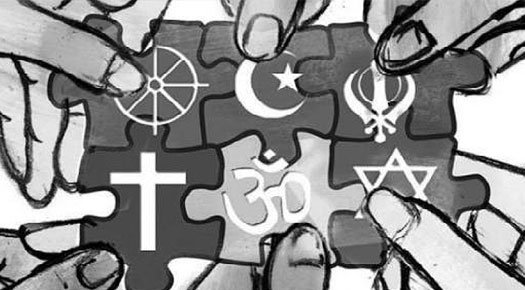
Levels of religious restrictions and hostilities in 25 of the most populated countries, where over five billion people live, vary drastically – from some of the lowest in South Africa to some of the highest in Indonesia. According to a new study by Pew Research Center, Burma, Pakistan, Egypt and Russia have some of the highest levels of religious restrictions. In these countries, both government and society impose severe limitations on the religious beliefs and practices of their people.

For example, in Burma, Buddhist locals in Kyawpadaung attempted to stop Muslims from residing in the locality, saying their town had been purified of Muslims.
Similarly, in Pakistan, the government continues to implement laws that marginalize the Ahmadiya minority, including legislations that deny members of the community their right to vote or acquire a passport and other legal documents, unless of course they agree to renounce their faith. While Ahmadiyas claim to be Muslims, Sunnis in Pakistan refuse them that identity and often refer to them as outcasts.
When it comes to restrictions imposed by the government, China, the most populated country in the world, seems to have the highest level of restrictions. For instance, police officials in eastern Tibet recently beat a former Buddhist monk until he died because they discovered he still had recordings of speeches made by the Dalai Lama, who has a long history of tension with the Chinese administration.
While assessing social hostilities, India, which is the second most populated country in the world, has the highest level of hostilities. According to the United States Department of State’s yearly International Religious Freedom Report, religious hostilities against individuals who have converted from Hinduism to any other religion continue to result in violence and reconversions.
In Turkey, government restrictions rose to the highest level in 2013 since 2007. Reportedly, the government had imposed new limitations on religious minorities whereby police officials were arbitrarily taking into custody members of the Church of Jesus Christ of Latter-day Saints as well as those associating themselves with evangelical Protestant churches.
The United States too witnessed an increase in social hostilities from 2012 to 2013, after two brothers, in collusion with Muslim extremists, detonated bombs at the Boston Marathon, killing three and injuring several others.
Social hostilities also seemed to go up in Bangladesh after a Hindu student was accused of offending the Prophet, following which a radical mob violently attacked a Hindu village, burning down over 24 houses and severely beating up the student’s parents in the middle of the town square.
Yet, several other populated countries continue to have rather low levels of religious restrictions and hostilities. These include Brazil, Japan, the Philippines, the Democratic Republic of Congo and South Africa. While South Africa has the lowest levels of both government restrictions and social hostilities, the United Kingdom too witnessed a decrease in such social problems between 2012 and 2013.
Photo Credits: Penumbra Magazine
